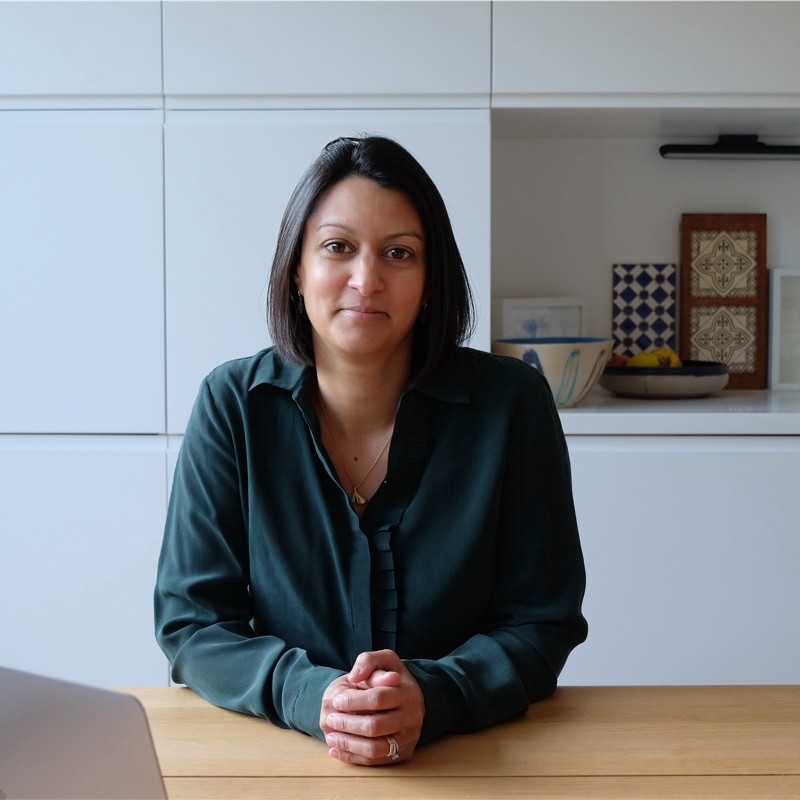12 natural PMS remedies that really work and how to ease premenstrual syndrome at home
Doctors and nutritionists share their advice on what really works for PMS and what natural PMS remedies are best to help ease premenstrual syndrome at home.


Natural PMS remedies can help ease PMS symptoms and make the effects less debilitating so you can continue on with your day like normal.
Premenstrual syndrome (also known as PMS) is a monthly set of physical, psychological and behavioural changes that women go through during part of their menstrual cycle called the luteal phase. As this occurs after ovulation (when the ovaries release the egg), it's a sure sign that your period is on the way.
Anyone who goes through a menstrual cycle can experience premenstrual syndrome and for 40% of women, period pain is accompanied by premenstrual symptoms, such as bloating, tender breasts, swollen stomach, lack of concentration, mood swings, clumsiness and tiredness. 5–10% of women have PMS symptoms which are severe enough to prevent them from getting on with their daily activities.
The exact cause of PMS is unknown, but it has been linked to a relative imbalance between the two female hormones, oestrogen and progesterone.
Natural PMS remedies recommended by doctors
1. Exercise
While exercise might be the last thing you feel like doing if you’re suffering from PMS, studies have shown that exercise not only helps to alleviate symptoms of PMS but gentle exercise (such as yoga or a walk) is also a great remedy for period pain. So, if you feel like you can manage it, trying out some gentle exercise could help ease your symptoms - even a few simple and slow yoga moves could help ease discomfort.
Dr Claire Phipps, GP and Advanced Menopause Specialist at London Gynaecology, told us that, "prioritising regular exercise" is a really important natural PMS remedy. "Movement is really helpful, try to incorporate some gentle exercise if you can – yoga, Pilates, or swimming for example."
"Engaging in regular aerobic exercise has been shown to alleviate PMS symptoms for many women, potentially reducing fatigue and symptoms of depression," says Dr Elise Dallas, Women’s Health GP at The London General Practice. "Activities like brisk walking, running, cycling, and swimming elevate heart rate and improve lung function, offering relief from mood swings and fatigue associated with PMS. It's important to incorporate regular exercise into one's routine, not only during symptomatic periods, to experience the benefits of physical activity on overall well-being."
GoodtoKnow Newsletter
Parenting advice, hot topics, best buys and family finance tips delivered straight to your inbox.
2. Make sure you get plenty of sleep
Dr Phipps also recommends getting an adequate amount of sleep to help with, "hormonal regulation and the alleviation of PMS symptoms."
The NHS recommends seven to eight hours of sleep per night and even though that's not exclusively to help with PMS, it certainly makes a difference.
To make sure you are getting a good night’s sleep Dr Phipps suggests, "Practising general sleep hygiene is helpful. Ensure the room you are sleeping in is well ventilated and calming if possible. Try putting your phone away before bed, dimming the lights or having a warm bath. "
3. Maintain a balanced diet
"Irrespective of age, the cornerstone of managing PMS lies in embracing a healthy lifestyle," says Dr Phipps. "It is important to allow some time for selfcare. This includes focusing on your diet. Magnesium-rich foods such as nuts, seeds and leafy greens can be helpful to include in your diet and protein-rich foods will help to control those cravings."
"Lifestyle changes and dietary modifications can help alleviate bloating associated with PMS," agrees Dr Dallas. "Avoiding salty foods and incorporating potassium-rich foods like spinach, bananas, and avocados into your diet can help regulate sodium levels and reduce water retention. Furthermore, natural diuretics like asparagus, pineapple, and ginger may aid in reducing bloating by increasing urine production."
Laura Southern, nutritional therapist at London Gynaecology, says, "I suggest that you try and focus on eating three meals a day, without skipping meals – so ensuring breakfast is there! Trying to build a diet based around protein, fibre rich veggies, beans and pulses, and a portion of essential fat with each meal. Essential fat comes from oily fish, nuts, seeds, olive oil, avocado. Starchy carbs, like rice, white bread, pasta, potatoes, noodles are fine to include, but are best being only ¼ of the meal, rather than the majority which can sometimes happen."
4. Cut back on caffeine and alcohol
Reducing caffeine and other stimulants in your diet can be a natural way of easing PMS symptoms. Dr Phipps recommends abstaining from caffeine and alcohol to help relieve PMS symptoms.
Dr Dallas explains that, “reducing alcohol intake to preserve essential nutrients like zinc can alleviate symptoms.” Zinc is important for helping to ease PMS symptoms and Dr Unnati Desai, National Lead for GP Services at Nuffield Health, explains “zinc has anti-inflammatory benefits”. So, as well as reducing your alcohol intake you can also try to eat more foods containing zinc: “the richest food sources of zinc include meat, fish, and seafood,” says Dr Desai.
5. Balance your blood sugar
"I try and focus on getting my clients to support their blood sugar balance in order to support their PMS symptoms," says Nutritional Therapist Laura Southern. "If our blood sugar is disrupted due to skipping meals, eating lots of high sugar, highly process foods, or high caffeine levels, then this can disrupt our body’s ability to regulate oestrogen and progesterone and therefore lead to symptoms."
6. Lessen the stress
There's no proof that reducing your stress levels will help to ease symptoms of PMS, but there's certainly cause to believe that stress makes symptoms of PMS worse.
Dr Phipps emphasises the importance of, “effectively managing stress and anxiety” as a natural way of managing PMS.
Dr Desai suggests trying relaxation techniques, such as breathing exercises and yoga, and also practising mindfulness to help, "improve negative thoughts and feelings of sadness and anxiety."
7. Make room for magnesium
Magnesium can help with PMS by easing both physical and mental symptoms. Nutritional therapist Laura Southern explains, "Magnesium can be a really effective tool to help reduce PMS symptoms like anxiety, pain, muscle aches. Mg is known as ‘nature’s tranquiliser’ and it has a calming and pain relieving effect on the body. 350mg of magnesium in the glycinate or threonate form can be useful."
Dr Unnati Desai told us that, "Magnesium can improve headaches and poor sleep, as well alleviate period cramps by relaxing the uterine smooth muscle. It can also promote a sense of calm and decrease anxiety levels." Dr Desai recommends the following foods as good, natural sources of magnesium: "green leafy vegetables, such as spinach, legumes, nuts, seeds, and whole grains."
8. Eat starchy snacks
Feeling the urge to snack is probably familiar to many people who suffer from PMS, but there could be a good scientific reasoning as to why you should give in to those cravings and allow yourself to nibble on your favourite food.
"Nibbling regular carbohydrate snacks raises blood glucose levels and helps progesterone bind to cells so it can work properly," says nutritionist Rob Hobson. "In one trial, published in the journal, Nutrients, women with PMS ate starchy foods (eg bread, rice cakes, digestive biscuits, wholegrain cereals) every three hours from first waking up until retiring, over 50 percent gained relief from symptoms, with a further 20 percent experiencing some improvement." Dietary changes alone, with no additional medication, gave full relief of severe PMS symptoms in 19 percent of sufferers.
This isn’t a green light to eat an entire family packet of crisps though. Dr Dallas warns that you should avoid, "refined carbohydrates, such as white flour and processed sugars, as these cause spikes in blood sugar levels. This increases the level of insulin in the blood, which causes the kidneys to retain more sodium."
9. Drink plenty of water
Much like getting enough sleep, drinking more water is a catch-all for improving how your body functions. Water is required for a variety of actions in the body, such as regulating body temperature and blood pressure, transporting oxygen and nutrients, lubricating joints and removing waste from the body. "Staying hydrated can also help with bloating," says Dr Dallas.
10. Increase your calcium intake
Calcium levels in the body fall in the week before menstruation, so making sure you eat more foods rich in calcium around this time can help with PMS symptoms.
"Increasing calcium intake through foods like seeds, almonds, leafy greens, and dairy or plant-based products may mitigate mood fluctuations,” says Dr Dallas. Dr Desai adds that calcium, found in dairy products, “can improve mood swings and food cravings."
11. Grab a hot water bottle
Applying warmth to the abdomen through a hot water bottle or heat wrap is a time-tested home remedy for alleviating PMS symptoms, including cramps and fatigue. Heat therapy helps relax uterine muscles and improve circulation, offering relief from pain and discomfort. Studies have shown that heat wraps can be more effective than over-the-counter painkillers in reducing cramps.
Additionally, indulging in a warm bath can provide soothing relief and promote relaxation, easing both physical and emotional symptoms associated with PMS.
12. Keep track of your cycle
"It’s important to keep track of your cycle and note down how your mood changes throughout the cycle," says Dr Phipps. "Understanding this will help you to manage your symptoms and also allow you to work out any patterns that occur."
Dr Phipps adds, "If your PMS symptoms are severe and you are not managing to control these yourself, it is important to speak to your doctor for support."
The NHS recommends keeping a diary of your symptoms for at least two to three menstrual cycles and bringing the diary to your GP appointment.
Our experts answer frequently asked questions about PMS
What are common symptoms of PMS?
Symptoms of PMS differ from person to person but these are some of the common ones, according to the NHS:
- Constipation or diarrhoea
- Abdominal pain and bloating
- Breast tenderness
- Headache and/or migraine
- Low mood and/or mood swings
- Anxiety
- Irritability
- Lethargy
- Difficult sleeping
- Skin issues
- Changes in appetite
- Changes in sex drive
- Joint or muscle pain
- Poor concentration and coordination
Despite the clear range of symptoms associated with the condition, no one quite knows what causes it. “We don’t know why some people get more symptoms than others. It may be to do with sensitivity to some of the ovarian hormones and also the level of fluctuation of hormone levels,” says Dr Claire Phipps.
What is the difference between PMS and period pain?
"Period pain and premenstrual syndrome (PMS) are distinct yet interconnected phenomena," says Dr Elise Dallas. "PMS typically manifests as a cluster of symptoms like weight gain, bloating, irritability, and fatigue, occurring one to two weeks before menstruation. On the other hand, period pain, experienced during menstruation, primarily involves menstrual cramps characterised by throbbing pain in the lower abdomen, often accompanied by symptoms such as lower back pain, nausea, diarrhoea, and headaches."
Can PMS get worse with age?
Yes, PMS can get worse with age and the symptoms can certainly become more pronounced. Dr Elise Dallas explains: "Contrary to a common misconception, PMS is not exclusive to younger women. Midlife PMS is a recognised condition, with hormonal fluctuations during perimenopause being a major contributing factor. These hormonal changes can exacerbate PMS symptoms compared to earlier stages of life when hormone levels were more stable.
"As women age and experience irregular periods, symptoms like breast tenderness, weight gain, and mood swings tend to become more pronounced. Stress, lifestyle changes, and perimenopause-related hormonal fluctuations can further amplify PMS symptoms.
"While habits in one's 20s, such as smoking and lack of exercise, can affect symptom severity, it's essential to recognise the impact of hormonal shifts on mood and physical well-being during midlife."
What vitamins are good for PMS mood swings?
"Ensuring adequate intake of essential nutrients like vitamin D and calcium is crucial,” says Dr Elise Dallas. “Vitamin B6 is associated with helping mood swings and anxiety - found in potatoes, bananas and whole grain cereals."
"Research suggests that supplementation with these nutrients can help reduce the severity of PMS symptoms. Additionally, vitamins such as thiamine, riboflavin, niacin, vitamin B-6, folate, and vitamin B-12 play pivotal roles in neurotransmitter synthesis, potentially influencing the pathophysiology of premenstrual syndrome."
What herbs are good for PMS mood swings?
"One of the most studied herbs within the area of female health is Agnus Castus," says gynaecologist, Dr Anne Henderson. "It can help to manage some of the common symptoms of PMS including bloating, cramping and irritability."
Nutritional therapist Laura Southern says, "I’m not a herbalist, but Ashwagandha can be useful for reducing anxiety, as can l-theanine. Supporting liver detoxification might also be helpful for certain individuals, so milk thistle or dong quai might work. It is always best to focus on a food first approach and seek individual support from an expert when dealing with supplements and herbs."
Disclaimer
The information on GoodTo.com does not constitute medical or other health advice or diagnosis and should not be used as such. Although GoodtoKnow consults a range of medical experts to create and fact-check content, this information is for general purposes only and does not take the place of medical advice. Always seek the guidance of a qualified health professional or seek urgent medical attention if needed.
Our experts

Dr Claire Phipps is a women’s health GP at London Gynaecology. A highly dedicated and compassionate GP, Dr Phipps graduated from Guy’s, Kings and St Thomas’s medical school and has many years of experience in providing comprehensive healthcare to all ages. Outside of the clinical work, Claire delivers menopause workshops, podcasts and advocates for community health initiatives to enable all women to receive the care they deserve.

Dr Elise Dallas is a General Practitioner at The London General Practice with over 20 years of experience. She graduated from Leicester Warwick Medical School in 2004, having previously earned a Bachelor of Science degree in Psychology and Human Biology. She is a Member of the Royal College of General Practitioners and holds several postgraduate diplomas in Obstetrics and Gynaecology, Sexual and Reproductive Health as well as a qualification from the British Menopause Society.

Dr Unnati Desai is National Lead for GP Services at Nuffield Health. She has worked as a corporate GP within Nuffield Health since 2011 and is the Safeguarding Lead for GP Services and Dermatology Lead at Nuffield Health. Unnati completed her medical degree and postgraduate medical training in Birmingham and completed her law degree in Nottingham. She pursued a career in General Practice and incorporates her areas of specialist interest, including Dermatology, Women's Health, Sexual Health and Family Planning, into her clinical practice.

Laura is fully certified nutritional therapist, who has worked in nutritional therapy for 14 years, she qualified at the prestigious Institute for Optimum Nutrition, which is recognised as one of the leading centres for nutritional training and education.
Laura works with London Gynaecology to support patients and their treatment plans with targeted nutritional intervention.

Rob is an award-winning registered nutritionist and sports nutritionist with an academic foundation including three degrees in nutrition. Rob began his career in public health, where he made significant contributions through his work with NGOs, Local Authorities, contract caterers and NHS focusing on nutrition for nurseries, school meals, care homes and vulnerable groups.

Anne Henderson is a Consultant Gynaecologist and one of a select group of British Menopause Society Advanced Specialists in the UK. The British Menopause Society or MPS accredit highly-qualified healthcare professionals who demonstrate extensive knowledge and expertise in the field of Menopause and HRT.
Recent updates
This article was originally published on July 13th 2021 and was updated on April 4th 2024 to ensure that all information is up to date and reflects current expert advice on the topic.

An internationally published digital journalist and editor, Rachael has worked for both news and lifestyle websites in the UK and abroad. Rachael's published work covers a broad spectrum of topics and she has written about everything from the future of sustainable travel, to the impact of the coronavirus pandemic on the world we live in, to the psychology of colour.
- Grace WalshFeatures Writer
-
 Compromising may be killing your relationship - here are 5 ways to reach healthy compromises, according to relationship expert
Compromising may be killing your relationship - here are 5 ways to reach healthy compromises, according to relationship expertCompromising isn't always the best way to keep the peace in a relationship
By Charlie Elizabeth Culverhouse Published
-
 Best interactive pets for kids: 15 gift ideas for children of all ages
Best interactive pets for kids: 15 gift ideas for children of all agesFrom puppies to axolotls, take a look at our selection of the best interactive pets you can buy that are sure to be a hit with little animal lovers
By Sarah Handley Published